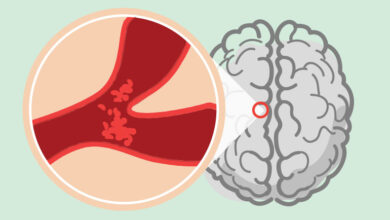Some foods are packed with healthy portions of vitamin B12, but sometimes this cannot maintain its optimal level in the body. We have covered the most common high-risk groups that should consider supplementing with vitamin B12 on a daily basis!
- People aged 60 and over who do not have enough stomach acid
- Patients diagnosed with autoimmune disorders, such as celiac or Crohn’s disease
- Vegans and vegetarians who do not eat products of animal origin
- Diabetics on Metformin (this medication affects the absorption of vitamin B12)
Symptoms of vitamin B12 deficiency
- Inability to keep your eyes open. It is because your blood is not rich in oxygen, and you do not get the energy your body needs;
- Feeling numb, tingly and experiencing a “pins and needles” sensation. This indicated that you are dealing with nerve damage as a result of poor vitamin B12 levels;
- Memory loss is also caused by vitamin B12 deficiency. This applies especially to young people who are too young to develop age-related dementia;
- Feeling wobbly or dizzy also indicates that your blood does not have enough oxygen;
- Yellow skin is caused by red blood cell degradation. It throws out a distinctive yellow pigment when it tears apart. If you lack vitamin B12, your body is unable to produce strong cells;
- Smooth tongue is something you get after you lose a few papillae “bumps.” These bumps help you recognize the taste, and if you are always getting a “blah” impression of your food, you are probably lacking vitamin B12;
- Feeling anxious and tearful, you are likely to deal with vitamin B12 deficiency. This vitamin is responsible for the production of “happy” brain chemicals, serotonin, and dopamine.
- Optic nerve damage leads to strange vision problems, so you often get blurry or double vision. Test your vitamin levels every time you notice shadows in your vision fields, because this is a common symptom of low vitamin B12 levels.
Causes of vitamin 12 deficiency
Although it is extremely important, vitamin B12 is one of the most overlooked vitamins. The deficiency of this vitamin may be caused by numerous factors, and we give you some of the most common:
- Antacids affect the assimilation of vitamin B12. Believe it or not, the body needs enough stomach acid to absorb vitamin B12;
- Nitrous oxide, also known as the laughing gas, destroys vitamin B12 in the body. Scary!
- The H. pylori bacteria destroys stomach cells that create the “intrinsic factor.” The body is unable to absorb vitamin B12 without his protein;
- Gastric bypass weight loss surgery alters the digestive mechanisms, and this may affect the absorption of vitamin B12;
- If you drink more than 4 cups of coffee per day, you have 15% less vitamin B12 than those who do not really fancy coffee. Scientists still have not found why is this so;
Dietary sources of vitamin B12
Plants do not need vitamin B12 for their metabolic processes, and they do not produce this vitamin. This means that you can get your vitamin B12 from foods of animal origin and fortified foods. Here are some nice examples:
- Seafood – sardines, salmon, tuna, cod, shrimp, scallops
- Meat – beef, pork, chicken, lamb, goat, turkey
- Dairy – cow’s milk, hard and soft cheese, cottage cheese, cream cheese, yoghurt
- Eggs – yolks are packed with all the vitamins and minerals
- Vegan sources – nutritional yeas, fortified coconut milk, or tempeh
Conclusion
Vitamin B12 is a water-soluble vitamin found in products of animal origin. Although it is easily available, some people cannot absorb it properly.
Do your vitamin tests regularly, and consult your doctor if you feel dizzy, weak, or numb. Carefully observe your condition for any changes and signs.




